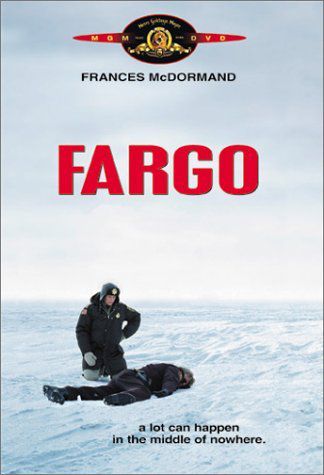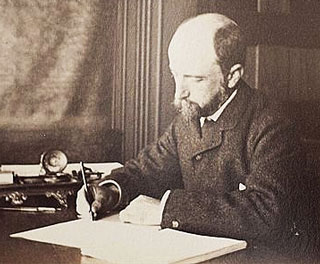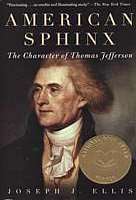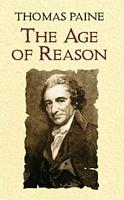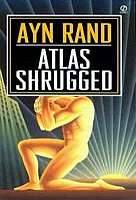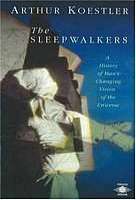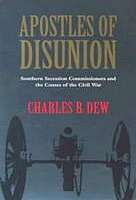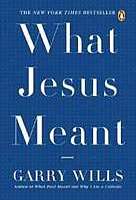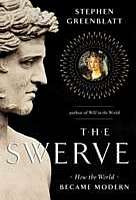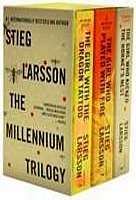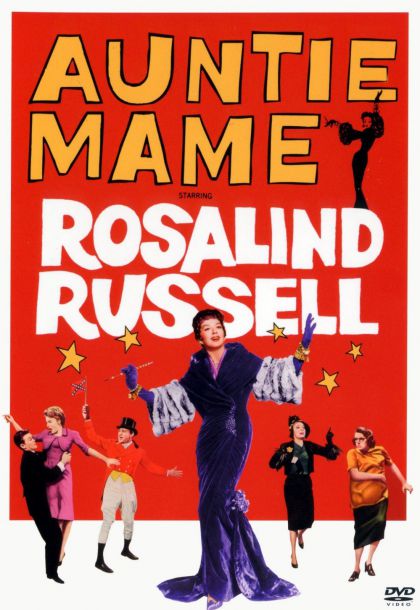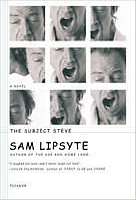 Genres
Genres
Stepping back from blind partisanship
Steve King recently wrote a sharply drawn satire entitled If My Guy Loses: Confessions of an Anonymous Partisan in the Atlantic Monthly. His rather ingenious device is to give full voice to an angry everyman who is broadcasting a blind partisanship, anonymous in the sense that he could belong to any political party.
Examples: I will protest things I once advocated. I will threaten to move to Canada. I will criticize the president for dishonoring the office of the presidency while I question his patriotism, citizenship, and character.
Cycle Oregon 2012 journal Day 7 from Bly – last day
Day 7 of the Cycle Oregon 2012. Riding with old friends in Southern Oregon. In which every adventure must come to an end. We finish our journey, starting from Klamath Falls and arriving back where we started in Bly.Cycle Oregon 2012 journal Day 6 from Klamath Falls
Day 6 of the Cycle Oregon 2012. Riding with old friends in Southern Oregon. In which we ride from Ashand to Klamath Falls, starting with a 12 mile climb up Dead Indian Memorial Highway. Tim was back in the saddle, and we enjoyed a leisurely ride.Cycle Oregon 2012 journal Day 5 from Ashland
Day 5 of the Cycle Oregon 2012. Riding with old friends in Southern Oregon. Rest day! Some riders took the optional climb up Mt. Ashland, but we did not. I took advantage of the Oregon Shakespeare Festival and saw a great play, All the Way, then met my friends for a relaxing dinner by the creek.Cycle Oregon 2012 journal Day 4 from Ashland
Day 4 of the Cycle Oregon 2012. Riding with old friends in Southern Oregon. In which I ride from Prospect to Ashland, sans Tim, who injured his achilles, and took a day off. A beautiful day in the forests, with an exhilarating 13 mile descent into Ashland.Cycle Oregon 2012 journal Day 3 from Crater Lake!
Day 3 of the Cycle Oregon 2012. Riding with old friends in Southern Oregon. In which we ride from Fort Klamath to Prospect, beginning with long and arduous climbing to the rim of Mount Mazama, where we rode around Crater Lake in glorious weather, the Cascade mountains surrounding us. The finish was a 20-plus mile fast descent!Cycle Oregon 2012 journal Day 2 from Fort Klamath
Day 2 of the Cycle Oregon 2012. Riding with old friends in Southern Oregon. In which we ride from Silver Lake to Fort Klamath, starting again in near-freezing temperatures, wandering through the Klamath Marshes in full glorious view of the Cascade mountains.Cycle Oregon 2012 journal Day 1 from Silver Lake
Day 1 of the Cycle Oregon 2012. Riding with old friends in Southern Oregon. In which we ride from Bly to Silver Lake, starting in near-freezing temperatures, and warming while riding through scrub forests and rolling hills.Cycle Oregon 2012 journal: Day 0 from Bly
At last! Day 0 of the Cycle Oregon 2012. Riding with old friends in Southern Oregon. In which we rendezvous and prepare for the week.Doctor Dad … Irreplaceable
My Dad, Tony Wiebe, retired as a family physician nearly twelve years ago, in 2000. He was my personal physician for most of his practice, as well as my family.During the course of his forty two years of practice, he had always taken care of family members, immediate and extended, with the greatest generosity. Dad was always available for family, 24 x 7, and family members were never charged for his services. He would get up at any time of the night and go to someone's house or meet them at his clinic when he received a call for help, whether from within his household or via the telephone.
Celebrating Frog – street jokester of Eugene
What does a dyslexic, agnostic insomniac do at night? He lies awake contemplating the existence of doG.
Years ago, my brother Craig and I were walking together on the way to somewhere in Eugene, Oregon, when a veritable gnome of a man approached us, towing a child's red wagon filled with what appeared to be hefty pamphlets. He introduced himself cheerfully as Frog, told us the joke above and offered to sell us one of his joke books that he carried in his red wagon.
What to believe?
Confusion is the only rational outcome of the questions raised by religion. How can one be certain that God exists or certain that God does not exist, or if God exists, what form God takes? To insist that any religion has the unequivocal answers to these questions is to be blinded by the fear of uncertainty and the fear of death. That is not to say that the religious impulse is a false one. What is the purpose of life? How do we live a good life, a meaningful life, a fulfilled life?Zeno’s Paradox? Not so much
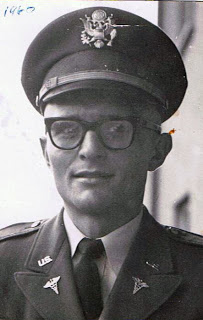
Family.
The first time I heard the tale of Zeno's paradox was in childhood, one night after dinner, with the family still around the table. My father grabbed a random section of the day's newspaper, called for a pencil, and with occasional cramped diagrams in the margins of the newspaper, intense and intent, showed us something that fascinated. Such moments with my father, which were relatively rare, I still treasure. His telling of Zeno's paradox inspired me these years later to attack the subject more vigorously.
The Bible Tells Me So, continued (3)
A reader commented on my second post regarding the Bible and homosexuality:Do I make [GLBT people] feel unloved? Well if you are a sincere Christian, then no, setting out intentionally to make them feel unloved is not an option. As you note, love is a key goal in Jesus teaching, whether one believes that homosexual sex is sinful or not.
This is a loving response. It probably wouldn't need to be mentioned, were there not so many who profess to be Christians who are openly and markedly unloving in their response to that community. Yet the kind of charity the reader goes on to describe is limited. See my response in defense of a more supportive view.Voltaire is a sharp kick in the pants
Voltaire always had his wits about him. When once a visitor arrived, announcing that he had just come from a visit to another well-known writer, Voltaire offered the opinion that the aforementioned writer was a man of talent, and the visitor replied that that writer did not hold the same opinion of Voltaire, to which Voltaire retorted, 'We could both be wrong.'
The Bible Tells Me So, continued
A reader responded to my article The Bible Tells Me So, a short discussion of Matthew Vine's recent video about the Bible and homosexuality, arguing that Vine's interpretation was incorrect, and that Jesus proscribed homosexuality. See my defense of a more loving interpretation.
Grandbabies!
The birth of a new child in the family never gets old, even if it occurs a thousand miles away! My niece Janna and her husband Jerome recently had a baby, Deacan. Not long before Deacan was born, Matt and Katie Stewart had a baby, Miriam, the first grandchild of my old friends Tim and Laurie. And penultimate addition to the Wiebe family, Sophia, remains a source of regular, albeit once removed delight, thanks to Facebook.The Bible tells me so
Matthew Vines, a young gay Christian, has made a serious argument that the Bible favors loving relationships for people of all sexual orientations, not just heterosexuals.
Fargo: A movie that never gets old
Fargo is an almost blissfully surreal take on what the world would be like if everyone had an IQ of 88, building a structure of nincompoopery around a more typical tale of desperate crime gone wrong. This movie could be the Coen brother's extended take on Woody Allen's joke about a village idiot's convention in Love and Death
Can precision in writing be attained?
I was reading a recent article by Andrew Sullivan, who asks the question: "Does punctuation matter?" The discussion was nominally about internet and texting abbreviation in both word and thought, but raised other questions to me:
Does precision in writing matter? If so, when does it matter? These are devilish questions.
Nothing is something
"Diddly squat is as close to squat as makes no nevermind." (page 124)
 This is a superb and far-ranging essay on the apparently mundane zero. While it might be expected to be predominantly mathematical, it is much more, an erudite and masterly exposition that touches many disciplines without slighting its mathematical roots. It has an exponential arc.
This is a superb and far-ranging essay on the apparently mundane zero. While it might be expected to be predominantly mathematical, it is much more, an erudite and masterly exposition that touches many disciplines without slighting its mathematical roots. It has an exponential arc.Jefferson’s legacy
Joseph Ellis provides us with an ambitious analysis of the compartmentalized mind of Thomas Jefferson. Jefferson was extraordinarily adept at saying and writing, apparently believing, and doing things that were paradoxical and often diametrically opposed to each other. Ellis suggests that this helps to explain his enduring following by just about every political persuasion in the United States, and even abroad: Anyone can find in Jefferson something that supports one's ideology, especially if they studiously ignore, in perfect Jeffersonian fashion, the things Jefferson said or did that would negate their ideology.
Reasoning with Thomas Paine
Thomas Paine was perhaps the most persuasive of those proponents of revolution in the American Colonies of Great Britain, and well after his influential pamphlet Common Sense he continued to write about 'revolting' things (tongue well in cheek) in the following period of the French Revolution. His pamphlet Age of Reason is a fiercely argued defense of freedom of religion, an argument against organized religion and an argument for deism, written between 1794 and 1797 from Revolutionary France.
There but for the grace of God goes … Ayn Rand?
I have been sometimes surprised by which ideologies have chosen to embrace Ayn Rand and for what reasons, wondering how she influenced anyone beyond selfish teens and the wealthy. I was particularly surprised to see signs of evangelical Christians embracing Atlas Shrugged, since on first inspection, it would seem a gargantuan stretch between the ideas of Rand, an avowed atheist who openly mocked the religious and the poor, and the ideas of Jesus, who emphasized a caring life centered around selflessness to focus on God and the afterlife he promised. It would seem impossible for evangelicals to follow Ayn Rand; how did this come about?Sleepwalking amid new ideas
Arthur Koestler's book Sleepwalkers: A History of Man's Changing Vision of the Universe is an ambitious attempt to describe the development of Western cosmology and astronomy from the Greeks to Newton, with particular focus on Copernicus, Brahe, Kepler, and Galileo. Koestler did not see science as a linear and unbroken line of rational progression; instead he viewed the course of the history of ideas as somnambulant: Many ideas were stumbled upon by men with goals and mindsets alien to the very ideas they uncovered.
Slavery was the First Cause of the Civil War
It has always been for me somewhat of a puzzle as to why many in the South up to today insist on the idea that slavery was not a primary cause of our Civil War, but that states rights, economic warfare, etc. or anything but slavery were the deep and the proximate cause of that war. Charles Dew, born and raised in the South, writes this monograph on that very subject. He comes at the subject by researching the various documents created and speeches made by the politicians and government officials of Southern states prior to the start of the Civil War for the purpose of justifying, insisting upon, and finally enacting the secession of the various states from the Union.
Jesus, simply
Garry Wills, who is a believing Catholic, attempts to extricate the Jesus of the New Testament from the 1,700 year edifice of organized Christianity by doing his own translation of the koiné, or marketplace Greek ,in which the New Testament was originally written.
Is religious tolerance religious freedom?
 The ensuing religious fragmentation of Western Christendom following the advent of the Reformation created fissures in the fabric of European society so large that, after a century of warfare, borne by the exhaustion of bitter hatred and its accompanying destructiveness, the only option left for a more peaceful existence was the grudging co-existence of groups with religious differences.
The ensuing religious fragmentation of Western Christendom following the advent of the Reformation created fissures in the fabric of European society so large that, after a century of warfare, borne by the exhaustion of bitter hatred and its accompanying destructiveness, the only option left for a more peaceful existence was the grudging co-existence of groups with religious differences. Swerving into modernity
Stephen Greenblatt's book The Swerve: How the World Became Modern is an excellent tale of the influence of Epicurus on the modern way of thinking. Epicurus spoke of change in terms of a 'swerve'; the author's allusion to a swerve otherwise is to the narrow and chance survival during the Renaissance of Lucretius' poem De Rerum Natura, a rumination and celebration of all things Epicurean, and whose influence in subsequent Western thought represents a giant swerve in cosmology, religion and natural philosophy away from Plato and Aristotle and towards Epicurus.
Imagination nonpareil
This is some of the most imaginative writing I have read since perhaps Tolkien's Lord of the Rings trilogy, or some of the classic science fiction of Asimov and Herbert.
Lizbet Salander, meet Inspector Maigret
Lizbet, the Girl with the Dragon Tattoo, carries the Millenium Trilogy. She is a private investigator, a severely withdrawn, highly intelligent young woman who has been terribly abused, both by her father and as a ward of the state. Lizbet trusts no one, and has developed world class computer hacking skills which serve her in good stead in her job as a private investigator and beyond. She teams up with an older investigative journalist, the fruit of said union providing a broad view of two generations of Swedish culture.
The secret world sharply rendered
This is a long historical novel that dares to write with some depth around the subjects of cryptoanalysis, mathematics, computers, and operating systems. It is full of insights about the technology, about those who live that technology, and about the cultures they inhabit.
Cycle Oregon 2012!
Woo Hoo! I have signed up for the Cycle Oregon 2012 edition, that odd mix of pleasure and pain.
Pocket Review, Title Auntie Mame, Studio Warner Bros., Rating 4.0,
Auntie Mame: A movie that never gets old
Mame is a free-spirited woman who believes that 'Life is a banquet - and most poor suckers are starving to death.' She is given care of her nephew when her brother unexpectedly dies, and raises him in her very unconventional world, against the wishes of his legal guardian, an often perplexed conservative banker played with great comic style by Fred Clark . It is Rosalind Russell's best role.
(Post?) Modern tale of mortality
Is the Subject Steve dying? Aren't we all dying? Is the Subject Steve actually Steve?


 Avoid oversimplifying ideas, and presenting exaggerated claims.
Avoid oversimplifying ideas, and presenting exaggerated claims. READING
READING ARCHIVES
ARCHIVES CATEGORIES
CATEGORIES QUOTES
QUOTES















